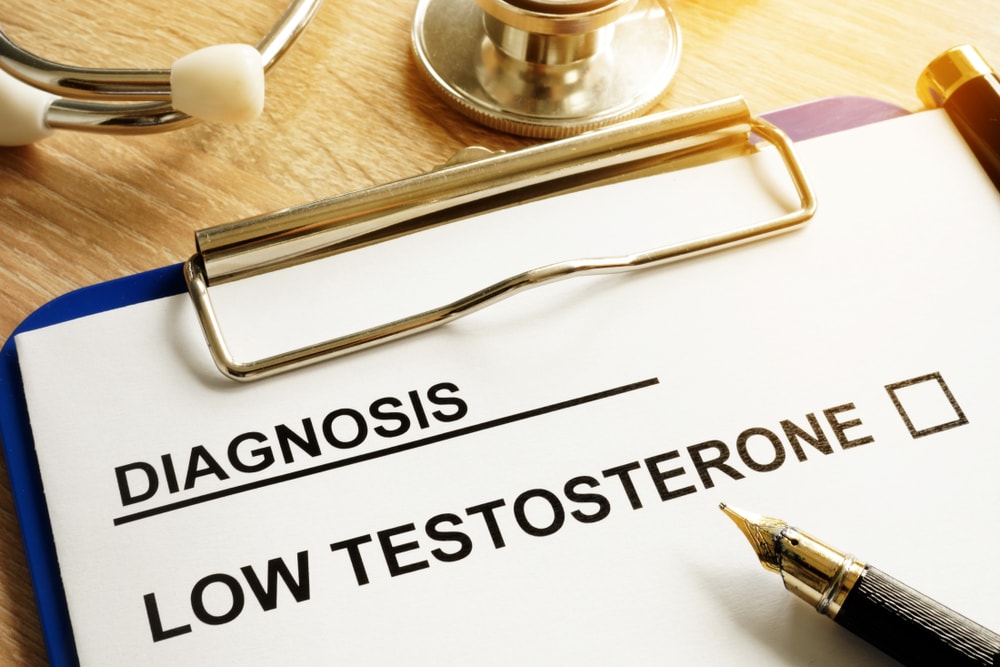Is Testosterone Supplementation Dangerous? New Research
Almost a decade ago, a paper was published that suggested that giving aging men testosterone supplementation was dangerous. Now, like all things in medicine, the recent research just reversed itself. Let’s dig in.
Testosterone Supplementation
Testosterone is produced by both men and women, even though it’s very much associated with male secondary sex characteristics. As men age, less is produced, so since testosterone is associated with maintaining muscle mass, older men begin to lose that muscle mass. In addition, other things that happen as testosterone decreases, such as low energy and lower sex drive. This is called andropause.
One obvious solution for andropause is to supplement a man’s declining testosterone. This has become very popular and is usually accomplished with intra-muscular shots once or more a week. Sometimes pellets are instead inserted under the skin. In my clinical experience, the men who do this look and feel much better, but is there a risk?
Does Testosterone Supplementation Cause Heart Attacks?
Back in 2014, a paper was published that suggested that testosterone supplementation substantially increased heart attacks (1) I remember this one well as at the time, I had been asked to lecture at a large age management medicine conference. This was like attending a big fancy ball only to find a turd in the punchbowl, as all of these physicians used testosterone supplementation in their patients.

The speakers at that conference had some serious criticisms of the research, not the least of which was that it was performed in a VA hospital where many of the patients were indigent with many other serious comorbidities (meaning they had lots of other diseases). This is a real problem at the VA as anyone who has been through medical training can attest. Meaning any veteran who has a job and private health insurance generally stays away from the VA system. There were other critiques, so I sort of ignored the research, convinced it wasn’t likely showing a real effect that would apply to my patients.
My Experience with Age Management Medicine
About that same time, I began seeing an age management doctor, Julie McCallen, M.D. who is here in Denver. Julie and I have worked together on my aging body for years, beginning with testosterone and thyroid supplementation, lots of specific supplements, and eventually Sermorelin. Julie acts as my personal health coach and I was so impressed with her knowledge of this area that she’s also my wife’s physician. While it took a while for me to dial it all in on my end, as you may have noticed from my Facebook lives and videos or from seeing me in the office, I’ve lost about 40 pounds of baby fat and added as much muscle. Ultimately what I figured out was that if older people wanted to stay in shape they needed to:
- Supplement waning hormones. For men, that’s testosterone and thyroid, for women that’s usually amounts of testosterone, progesterone, and estrogen. All of this needs to be monitored and adjusted with blood testing several times a year. For both sexes, that’s also usually adding in a growth factor analog like Sermorelin.
- Work-out hard, which includes as much weight-lifting as aerobic activity.
- Eat the right stuff and less of it-this one took me a while to figure out, after gaining weight during the pandemic. Meaning you have to very strictly watch what you eat and how many calories you consume per day.
- Use senolytics-for me that’s metformin. A senolytic is a drug that can reduce the effects of aging.
A New Testosterone and Heart Disease Study
A new meta-analysis was just published and sent to me by a colleague. It’s a meta-analysis of 35 published studies that tracked heart attacks and heart disease in men taking testosterone (2). It found no association between testosterone and heart attacks and in fact in most studies, men on testosterone had fewer heart attacks. This makes clinical sense to me, as anything that can help take off weight and allow for more physical activity is more likely to have a protective effect than a deleterious one. The authors eventually conclude that while we need more long-term data, their analysis shows no cardiac risks.
The upshot? As I always say, medicine is always a work in progress. Meaning what seems certain today, is more likely than not to be considered silly a decade from now. When it comes to testosterone, I wasn’t worried back in 2014, and even less so now. So if you’re an aging man, you may want to find an age management medicine doctor near you!
___________________________________________________________
References:
(1) Finkle WD, Greenland S, Ridgeway GK, Adams JL, Frasco MA, Cook MB, et al. (2014) Increased Risk of Non-Fatal Myocardial Infarction Following Testosterone Therapy Prescription in Men. PLoS ONE 9(1): e85805. https://doi.org/10.1371/journal.pone.0085805
(2) Hudson J, Cruickshank M, Quinton R, Aucott L, Aceves-Martins M, Gillies K, Bhasin S, Snyder PJ, Ellenberg SS, Grossmann M, Travison TG, Gianatti EJ, van der Schouw YT, Emmelot-Vonk MH, Giltay EJ, Hackett G, Ramachandran S, Svartberg J, Hildreth KL, Groti Antonic K, Brock GB, Tenover JL, Tan HM, Kong CHC, Tan WS, Marks LS, Ross RJ, Schwartz RS, Manson P, Roberts S, Andersen MS, Magnussen LV, Hernández R, Oliver N, Wu F, Dhillo WS, Bhattacharya S, Brazzelli M, Jayasena CN. Adverse cardiovascular events and mortality in men during testosterone treatment: an individual patient and aggregate data meta-analysis. Lancet Healthy Longev. 2022 Jun;3(6):e381-e393. doi: 10.1016/S2666-7568(22)00096-4. PMID: 35711614; PMCID: PMC9184259.

NOTE: This blog post provides general information to help the reader better understand regenerative medicine, musculoskeletal health, and related subjects. All content provided in this blog, website, or any linked materials, including text, graphics, images, patient profiles, outcomes, and information, are not intended and should not be considered or used as a substitute for medical advice, diagnosis, or treatment. Please always consult with a professional and certified healthcare provider to discuss if a treatment is right for you.
